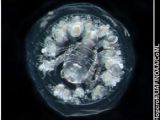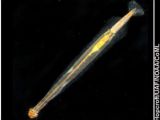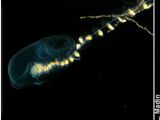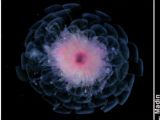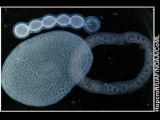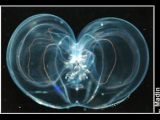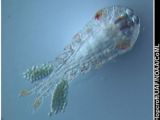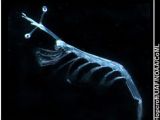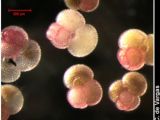The quantity and diversity of tiny creatures found in a deep-sea survey in the Bermuda Triangle region of the Atlantic Ocean amazes scientists.
During a 20-day cruise, completed April 30, as part of an ambitious global inventory of zooplankton by 2010 (dubbed the Census of Marine Zooplankton, CMarZ), researchers used trawling nets and scuba divers to explore down to 5 kilometers beneath the ocean surface.
"We are just starting to realize how little we know about species variety," said Ann Bucklin, a University of Connecticut marine scientist who leads CMarZ. "We used to think we knew many species well, but the advent of DNA barcoding has radically altered that perception. Genetically distinctive species of zooplankton are being found with increasing frequency."
"Among more than 1,000 individual organisms identified at sea, our team of 28 leading marine experts on board found what appear to be several undescribed species that may well prove new to science," says the cruise's scientific leader Peter Wiebe, senior scientist at the Woods Hole Oceanographic Institution, USA.
Phytoplankton is Earth's largest carbon sink and thus plays a major role in curbing global warming. Scientists want to see what impact ocean acidification may have on them. Zooplankton species provide a fundamental link in the food chain between ocean plant life and predators from fish to whales.
"This research is fundamental to our knowledge of the oceans and the basic processes sustaining life on Earth," says Ron O'Dor, chief scientist for the Census of Marine Life. "CMarZ is helping to explain: what species are present? What are the main patterns of their distribution and abundance? And what maintains the shape of these patterns?"
"By 2010, the research conducted by this project will provide a baseline against which future generations can measure changes to the zooplankton and their provinces, caused by pollution, over-fishing, climate change, and other shifting environmental conditions," Bucklin said.
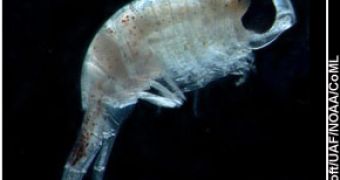
 14 DAY TRIAL //
14 DAY TRIAL // 
